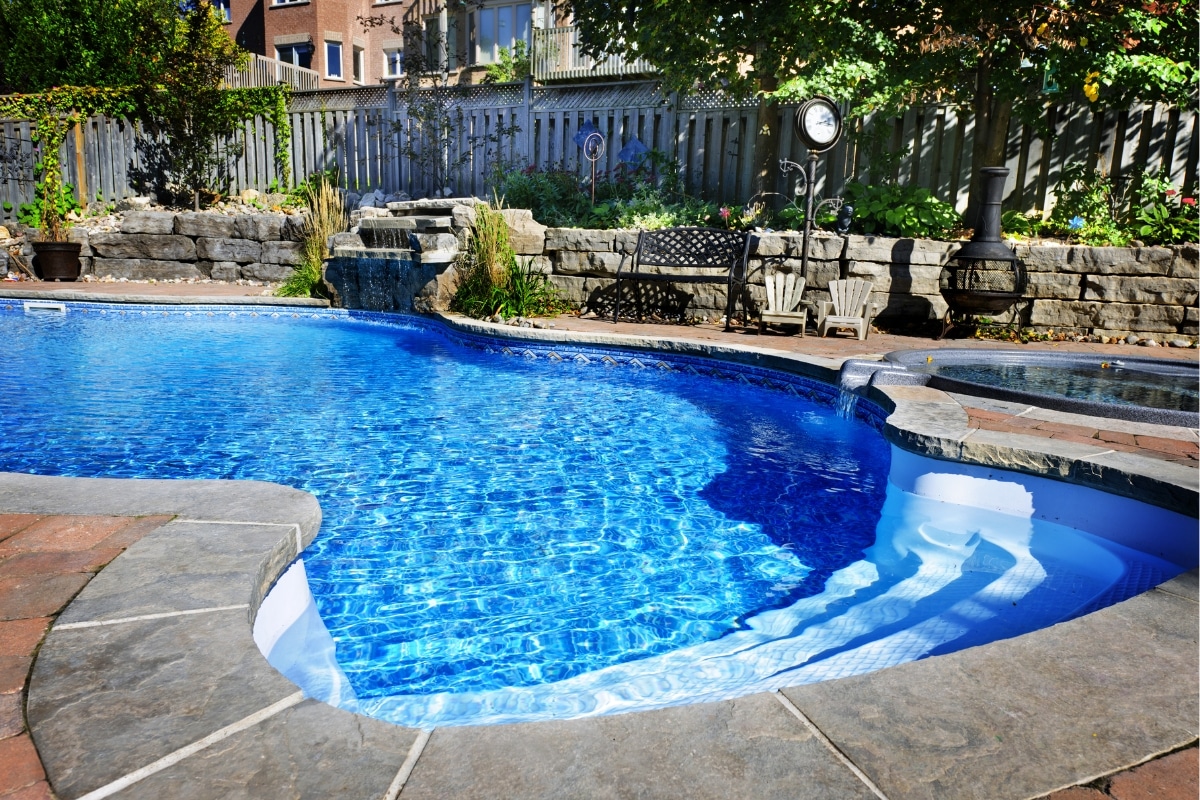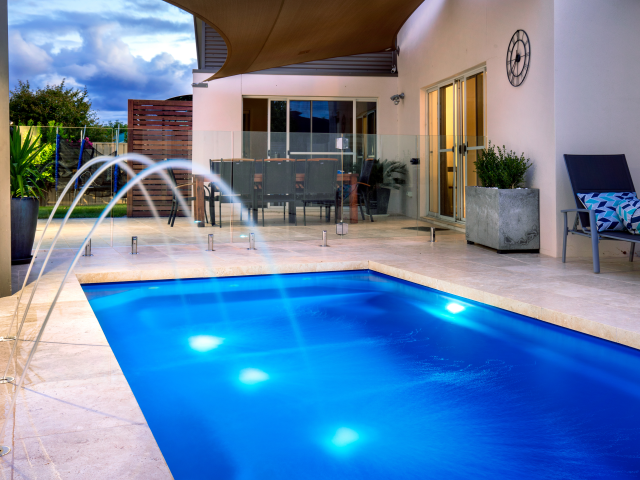Call Us TODAY: (417) 771-7552
Energy Efficiency Of Fiberglass Pools: Saving Money On Heating

Are you looking to reduce your heating costs while enjoying your pool year-round? Fiberglass pools provide a fantastic solution to achieve this. Known for their exceptional energy efficiency, these pools significantly lower heating expenses. The unique composition of fiberglass, combined with advanced heating technologies, ensures that your pool maintains a comfortable temperature with minimal energy use.
Unlike traditional pool materials, fiberglass has excellent insulation properties that help retain heat more effectively. This not only means a more consistent water temperature but also fewer fluctuations in heating costs. In this blog, we’ll dive into how these pools stand out in terms of energy efficiency, how they contribute to cost savings and practical tips for optimizing your pool’s heating system.
Why Fiberglass Pools Are Energy-Efficient?
These pools are renowned for their energy efficiency, offering several key advantages:
Excellent Thermal Insulation:
These pools excel in thermal insulation. The material’s inherent properties prevent significant heat loss, helping to maintain a stable water temperature. Once the water is heated, it stays warmer for a longer time. This efficient insulation reduces the need for continuous heating, leading to lower energy consumption and cost savings over time. Unlike other materials that allow heat to dissipate quickly, fiberglass acts as a barrier, keeping the warmth contained within the pool.
Smooth Surface:
The smooth, non-porous surface of this kind of pool contributes to its energy efficiency. Unlike concrete or vinyl pools, fiberglass does not have porous textures that can absorb heat or create friction. This smoothness prevents the loss of heat through surface irregularities and reduces water resistance. Consequently, the pool retains heat more effectively, minimizing the energy required to keep the water at your desired temperature. The absence of rough surfaces also means less heat is lost through evaporation, which can be a significant factor in other types of pools.
Low Maintenance:
These pools are known for their low maintenance needs. They require fewer chemicals and less frequent cleaning compared to other pool types. This reduced maintenance translates into more stable water conditions and better temperature retention. Since these pools don’t need as many chemical treatments or scrubbing, there’s less disruption to the water’s thermal balance. This efficiency in upkeep supports the pool’s overall energy efficiency by ensuring that the heating system doesn’t have to work harder to counteract temperature fluctuations caused by maintenance issues.
How Fiberglass Pools Help Save on Heating?
Here’s how these pools contribute to energy savings:
- Effective Heat Retention: Due to its insulation properties, fiberglass retains heat better than other pool types. Your pool heating system does not have to work as hard to keep the water warm, which results in lower energy consumption.
- Reduced Heating Time: These pools heat up quickly and maintain heat efficiently, which reduces the amount of time needed for heating. This lower heating time translates into reduced energy usage.
- Energy-Efficient Heating Systems: Many owners of this kind of pool opt for energy-efficient heating solutions like solar heaters or heat pumps. These systems work even more efficiently with the inherent insulation of fiberglass, enhancing overall energy savings.
Additional Tips for Maximizing Energy Efficiency
To optimize your pool’s energy efficiency, consider these additional tips:
- Use a Pool Cover: A pool cover helps reduce heat loss and evaporation. Covering your pool when it is not in use will keep the water warmer and reduce the need for additional heating.
- Adjust Pool Settings: Maintain a comfortable but not excessively warm temperature for your pool. This balance prevents unnecessary energy consumption.
- Regular Maintenance: Keep your pool and its heating system in good working condition. Regular maintenance ensures everything runs efficiently, avoiding wasted energy on malfunctioning equipment.
The Impact on Heating Costs
Switching to this kind of pool can significantly impact your heating costs:
- Lower Operational Costs: Due to the energy efficiency of this type of pool, you will spend less on heating. This can result in substantial savings over time.
- Increased Property Value: Installing this type of pool can enhance your property’s value. Energy-efficient features are attractive to buyers seeking cost-effective and eco-friendly options.
- Environmentally Friendly: Reducing your energy consumption lowers your carbon footprint and supports a more environmentally friendly way of living.
Why Opt for a Fiberglass Pool?
When considering a new pool, fiberglass is a compelling choice. It not only offers excellent energy efficiency but also provides a durable, low-maintenance solution. The combination of these benefits makes these pools an ideal choice for homeowners looking to save on heating costs while enjoying a beautiful, functional pool.
Selecting this kind of pool is an effective way to reduce heating expenses and enjoy your pool throughout the year. With its superior insulation, smooth surface, and energy-efficient properties, a fiberglass pool in Springfield can lead to significant savings on heating costs. Explore the advantages of your next pool installation to ensure a cost-effective and environmentally friendly choice.
For more details, consult with local pool experts and start planning your energy-efficient pool today.
Frequently Asked Questions
What makes fiberglass pools more energy-efficient than other types?
Fiberglass pools are known for their superior insulation properties. The gel coat surface of fiberglass pools minimizes heat loss, keeping the water warmer for longer periods. Unlike concrete or vinyl pools, which can lose heat through their porous surfaces, fiberglass pools maintain a stable temperature, reducing the need for frequent heating and saving energy costs.
Do fiberglass pools require more maintenance to keep them energy-efficient?
Fiberglass pools are relatively low-maintenance compared to other types. Their smooth surface reduces algae growth and makes cleaning easier, which helps maintain their insulation properties. Regular maintenance, such as cleaning the pool and checking for any damage, ensures that the pool remains in optimal condition and continues to perform efficiently.
What is the average cost savings from using a fiberglass pool compared to other types?
The cost savings from using a fiberglass pool can vary based on factors like the local climate, energy costs, and pool size. Generally, fiberglass pools can reduce heating costs by 30-50% compared to concrete or vinyl pools due to their superior insulation properties. Over time, these savings can add up, making fiberglass pools a cost-effective choice in the long run.




